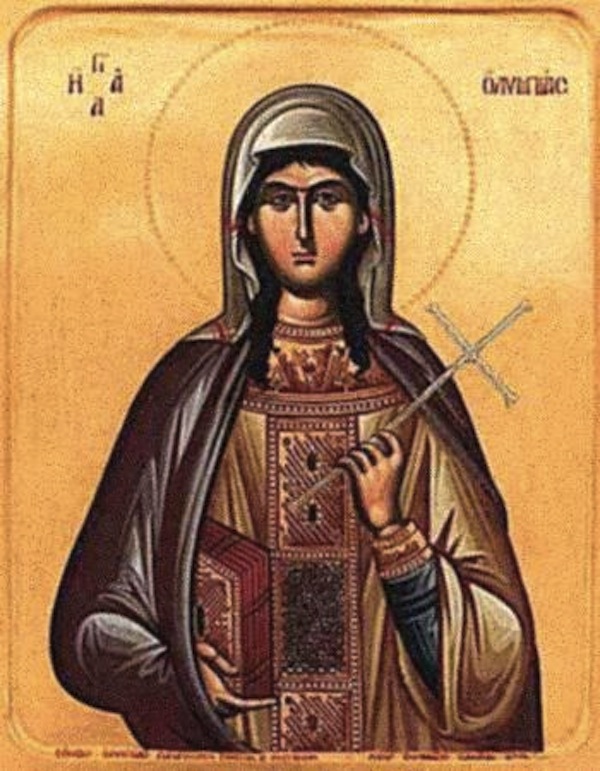As frequent readers will know I have a great admiration for the Biblical scholar N.T. Wright. Wright, who is an Anglican, supports women’s ordination to the priesthood. I, as a Catholic, accept the Church’s infallible pronouncement that it has no authority to confer priestly ordination on women, and also agree with Pope Francis that the Church needs a better theological think-through on women.
The highly helpful N.T. Wright Page has an excellent speech where Wright exegetes the well-known New Testament texts considering this contentious issue, and I have to say that I can heartily endorse (at least) 99% of it. You can agree to an all-male priesthood and still cringe when reading 1 Timothy 2.
In fact, reading Protestant debates on this issue is I think very enriching for Catholics, because they happen on a different plane. The Catholic theology of the priesthood ultimately has to do with the meaning of the Eucharist and the meaning of the Mass, and in particular with Catholic elements that the Protestants reject. As I said to a Protestant friend, if the question is whether women are equally qualified as men to teach and support a community, the answer is self-evidently yes. Protestant arguments about “women in ministry” do not find purchase in Catholic-world not because we differ about “women” but because we differ about “ministry“. What Protestants who talk about “priesthood” refer to as “priesthood” is an entirely different animal, and therefore we can profitably read, nowhere endangering the teaching on male priesthood, from Protestant arguments for “women in ministry” as arguments on vocations for women.
So we can put aside childish things, lay down the apologetical weapons, and actually look at the picture of the New Testament Church (which, after all, is the Catholic Church) that Wright paints and learn from it.
I think Wright is quite right (even though we disagree about the implications, but not because of our view of men and women, but our view of the priesthood) to point out that the New Testament Church put an equal stress on equality and complementarity, and that on this latter point, we should emphatically get past (historically quite conditioned) notions of “complementarity” as a shibboleth-word that would necessarily imply certain gender roles or prohibitions. I think Wright is quite right to point to the (in my view incontrovertible) historical fact of prominent women’s leadership in the early Church, a fact which we ought to let challenge us without fear that it questions the male priesthood, rather than one we should write off or ignore or explain away. I think Wright is quite right, in particular, to point to the fact of the women at the tomb, of Mary Magdalene as “apostle to the apostles” as a deep mystery we must always ponder.
To this demand and mystery–which cannot be reduced to legal statements or easy formulae–of equality-in-complementarity, I would add for my part as a signpost for reflection, a mention of the Threefold Office of all baptized Christians: King, Priest and Prophet. This draws interesting lines, and I will only sketch them out briefly and speculatively here.
For equality-in-complementarity, for example, I’ve written elsewhere that in my dream world, women would lead the singing in the liturgy. Young boys would serve the altar, and young girls would be the choir–both excellent mystagogies into the liturgy.
With regard to the priestly office, in my view, the question of women’s diaconate must be posed. If women cannot stand in persona Christi at the Eucharistic altar, this does not mean that they may not be deacons. This isn’t something I have read up on deeply, but the historical evidence for a women’s diaconate in the first centuries on the Church seems very strong to me. The argument against women deacons, as I understand it (and, again, my expertise is limited), seems to be, roughly speaking, that everything connected to altar service in a sense participates of the priestly order (just like the priestly order participates of the episcopal order) and so the same prohibitions apply (in the Traditionalist thinking, down to the altar servers). I actually find that this argument has great power and beauty, but if we regard Christ’s selection of the apostles as normative, should we not also thus regard the example of the early centuries of the Church?
With regard to the prophetic office, I have already made what I persist in thinking is an important proposal. With regard to the kingly office, I have elsewhere proposed reviving something like the institution of the Papal Legate, role which it seems to me there is no impediment to women occupying.
In any case, Wright’s speech makes profitable reading.
“Olimpiada diakonissa” by Original uploader was Testus at ru.wikipedia – Transferred from ru.wikipedia. Licensed under Public domain via Wikimedia Commons.












